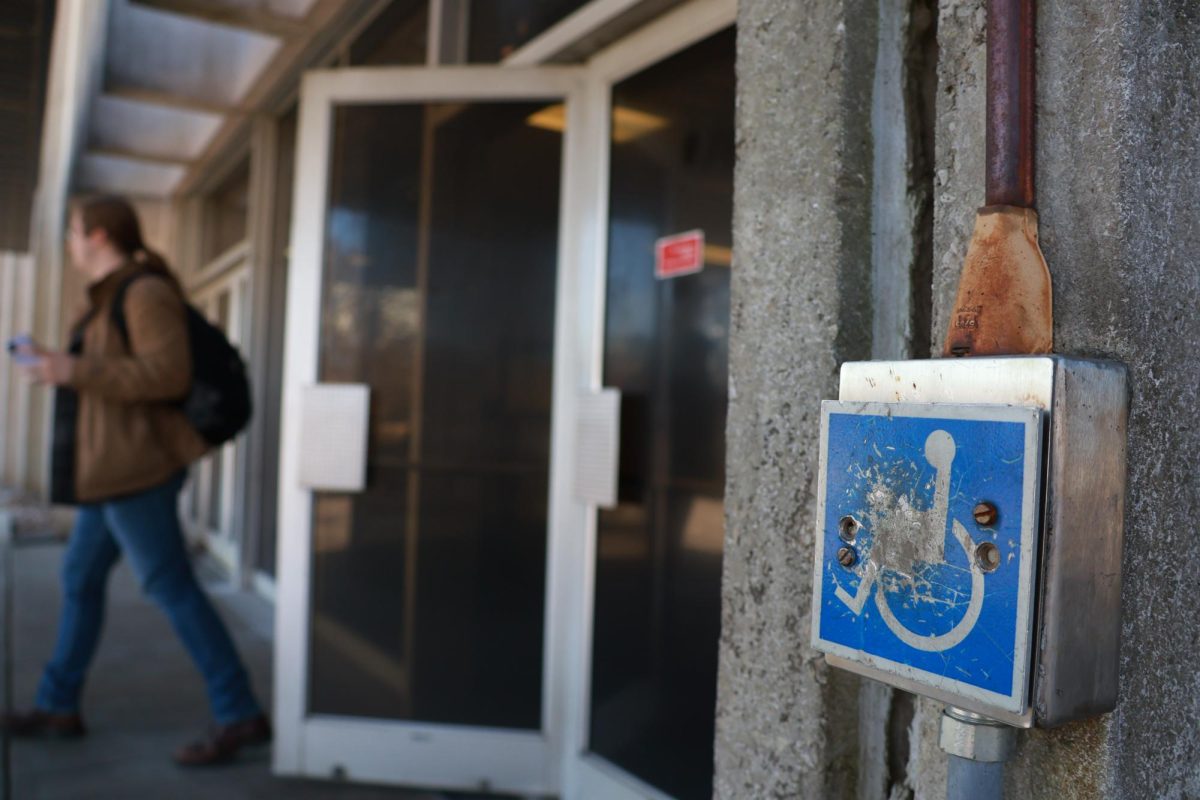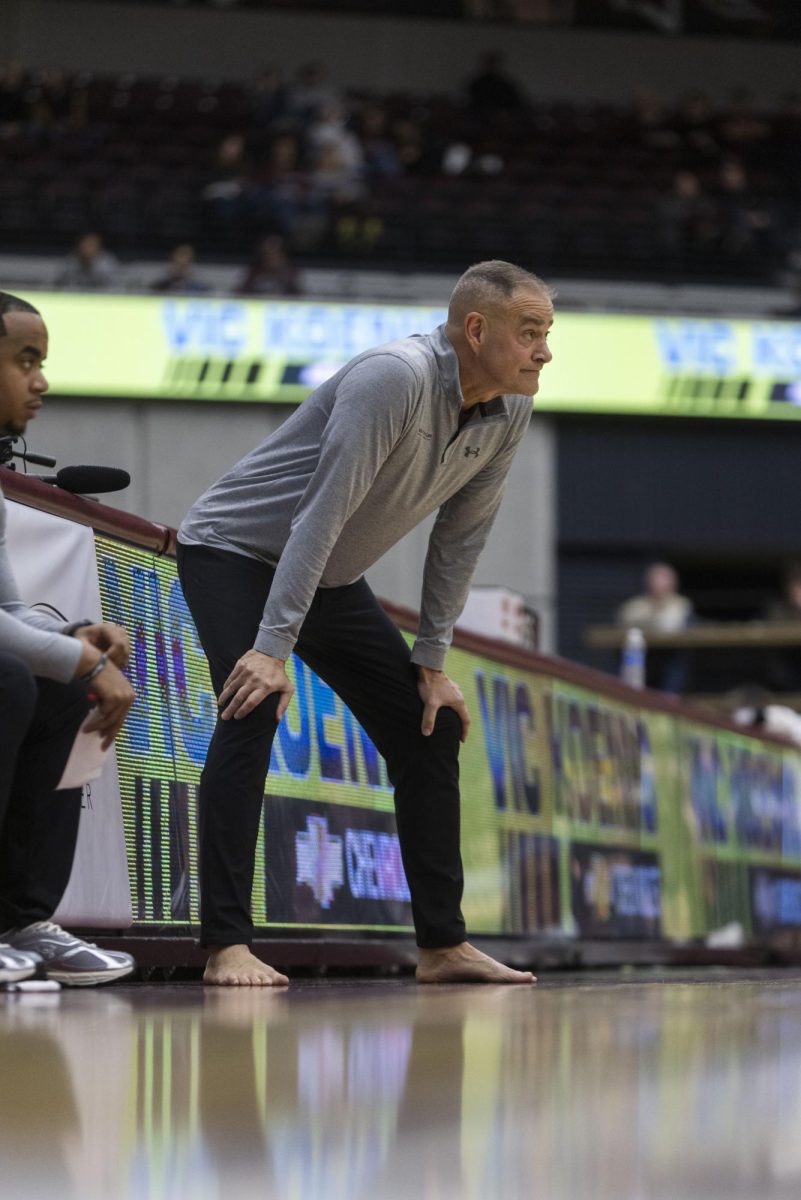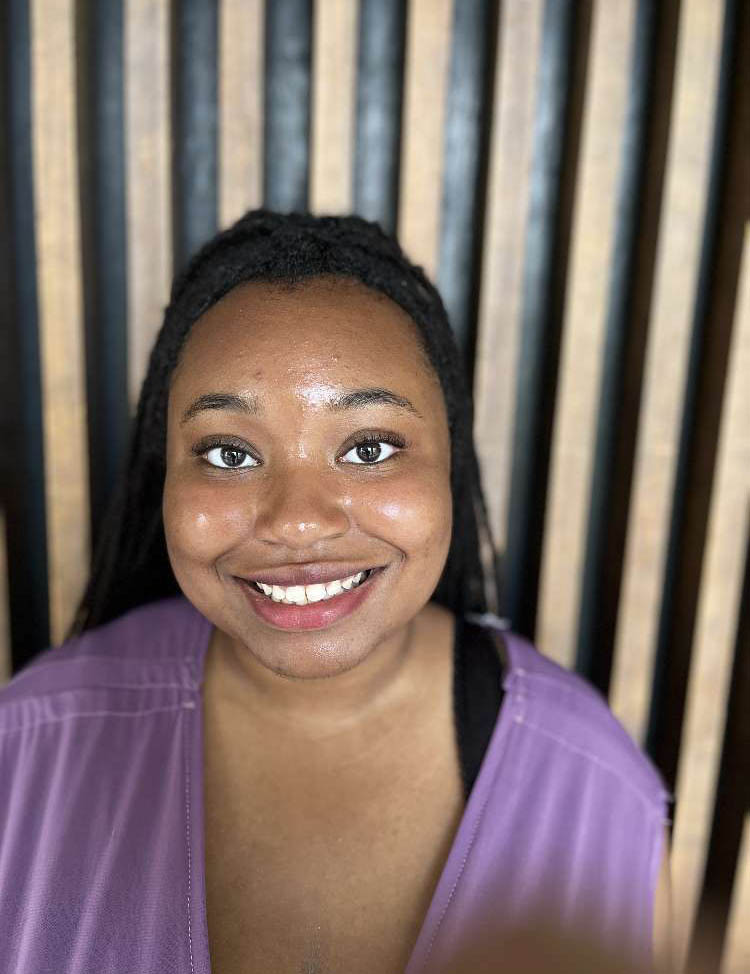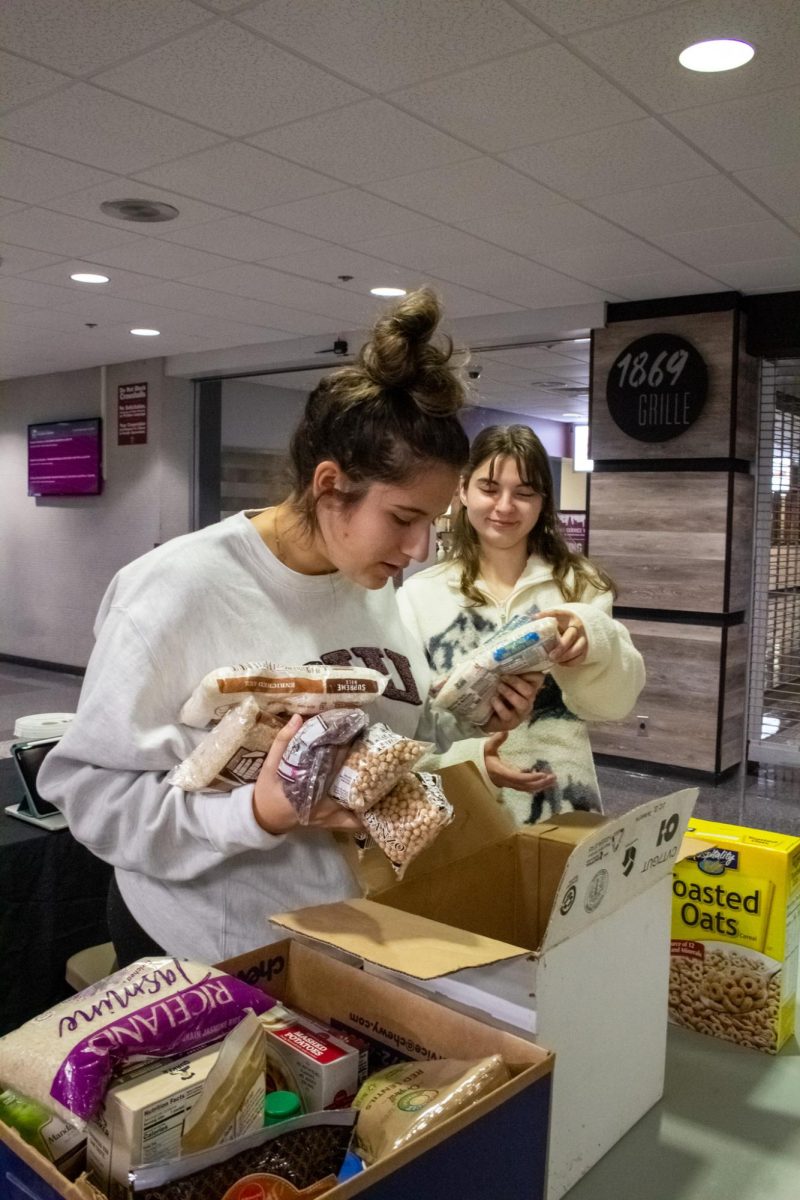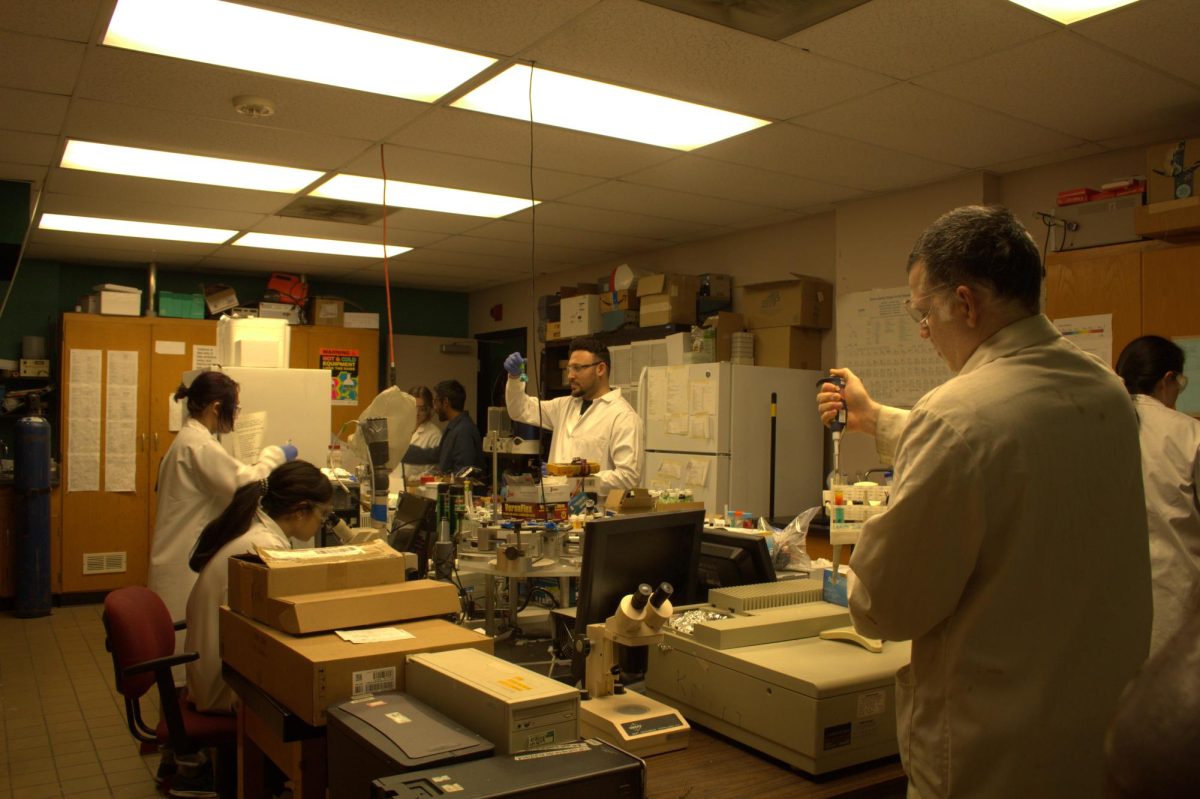Southern Illinois University touts a long history of accessibility and accommodations around campus and in classes, even before the law required specific accommodations. But despite meeting federal requirements, SIU still does not provide a learning environment that meets what many students need to be successful.
“‘You still have to attend, even if you can’t understand,’ is basically what I was told,” said Declan Smith, a Deaf student with ADHD and severe social anxiety.
Smith said that sometimes his hearing implants, which he prefers over an American Sign Language interpreter, malfunction, but he is still required to go to class.
Advertisement
“Having a way to have access to the slides from the professors or at least notes would be extremely helpful,” he said. “I’ve missed tons of due dates or information I would have used. Almost missed an exam due to it not being written down or posted online.”
Smith also referred to the required “Intro to Communications” course, which the university’s Disability Support Services (DSS) cannot accommodate for. The course’s abundance of presentations and speeches creates major difficulty for disabled students such as Smith.
“I’ve had a trigger attack during a class speech and was marked down on my score and talked to privately after,” he said.
Morgan VanMeter, another SIU student with ADHD, believes that the university should be more accommodating beyond what is offered, taking student needs into account.
“I think they should allow all students the option of taking a test at DSS, whether or not they have a doctor’s note,” VanMeter said. “A lot of people have testing anxiety but you can’t really get that diagnosed.”
VanMeter also called out the common practice of instructors banning laptops from class. In those cases, students will need to go through Disability Support Services in order to gain access to much-needed technology.
“I’ve needed special notes allowing me to have laptops in certain classrooms that I only get because I have DSS accommodations,” VanMeter said.
Advertisement*
The university has a few programs in place to help improve accessibility within the classroom.
Lisa Caringer is the director of the Office for Access and Accommodations; that office includes the Disability Support Services program as well as Achieve and employee accommodations under the ADA Office – which ensures the university complies with the Americans with Disabilities Act.
“We’re here should students elect to use us,” Caringer said. “It’s pretty painless, just an appointment with a coordinator to talk about needs.”
Through an interactive process between a student and a coordinator, after reviewing medical information and talking about life in college with accommodations and the expectations that come with that, the student can choose which accommodations they’d like to use for each course. Students can even opt out of using any sort of accommodations, so the students have control and have the final decision over which accommodations they’d like to use.
“We hope that students start to recognize that it’s, you know, in your best interest to use the services that are available,” Caringer said. “…But if they’re not satisfied with our services, they can complain to the Office of Equity and Compliance for some consideration whether or not we might have discriminated or someone else – another office on campus – discriminated against, they can assist students through that process.”
Caringer is an SIU alum whose background is in language interpreting and rehabilitation. Before working at SIU, she coordinated the Deaf and Hard of Hearing Services program at John A. Logan College in the 90’s, pushing for the administration to allow a specialized grant program for all students with disabilities.
“Everything clicked for me, and I really just fell in love with language and the Deaf community,” she said.
Caringer currently works with a small number of Deaf and hard of hearing students since the university doesn’t have a coordinator in that position at the moment, she said.
“Basically, our mission is to give students an equivalent experience to that of their non-disabled peers so that things are equally effective and the same ease of use, same manner… have as close an experience to someone who doesn’t need accommodations if possible,” Caringer said.
The issues disabled students face are not limited to just the inside of the classroom. As the campus’s buildings age, their outdated architecture and lesser priority on accessibility leaves some Salukis out in the cold.
Mark Owens, director of Facilities and Energy Management, said in an emailed response that SIU complies with the Americans with Disabilities Act, a federal civil rights law aimed to provide people with disabilities the same employment, goods and services and state/government participation and opportunities as everyone else.
While all the buildings on campus are ADA compliant, some more historical buildings remain mostly untouched with just a few modifications here and there such as at least one ramp and elevator where needed, Caringer said. A few examples include the Old Baptist’s Foundation that has a ramp on the back as well as Anthony Hall, another historical building, has an elevator since it’s the administration building and needs to be accessible.
“We could modify those buildings, but when you think about a historical building and the way they’re built and the ornateness of them, it’s darn near impossible to do it without ruining the building. The approach has just been to, if there’s a classroom in there – and there typically isn’t – we remove the class,” Caringer said.
Owens said, “Access is part of our commitment to diversity, equity and inclusion, which is a pillar of our Imagine 2030 strategic plan. Nevertheless, facilities have been modified to ensure accessibility, and we often exceed ADA standards. We have received national recognition for our efforts, including being named among the Top 20 Wheelchair Friendly Colleges by New Mobility Magazine and the United Spinal Association.”
He added that if people are finding issues, they should contact the staff at [email protected].
The Daily Egyptian surveyed six of the most frequented campus buildings. We found that some buildings are more accessible than others. Among our findings:
- The Student Center has four main entrances to the building, all of which are handicap accessible. All handicaps buttons to open the doors work, and the ramps and elevator are in good condition as well. Bathrooms on floors B, 1 and 2 are accessible.
- The Communications Building has handicap accessible entrances on all sides except for a few of the side doors near the School of Journalism. The elevator to all floors works, but there are no buttons to the Daily Egyptian newsroom doors and there is one accessible one-stall bathroom on the first floor.
- In Morris Library, handicap buttons for doors to bathrooms are available only on floors 1, 6 and 7. All elevators are in good condition, and there are two ramps on both sides of the building to the main doors; however, the right side ramp is much more narrow than the left side.
- In the Banterra Center, the downstairs main entrance’s handicap buttons do not work on the right side doors for both inside and outside. There are stairs at almost all of the main entrances besides the downstairs one. There is an elevator next to that entrance that is in good working condition.
- In Shryock Auditorium, steep ramps are in place for all accessible entrances, which are in mid condition. The elevators are in good condition.
- In Faner Hall, there are elevators at each entrance. However, narrow hallways would be difficult to navigate in a wheelchair.
Advertisement



